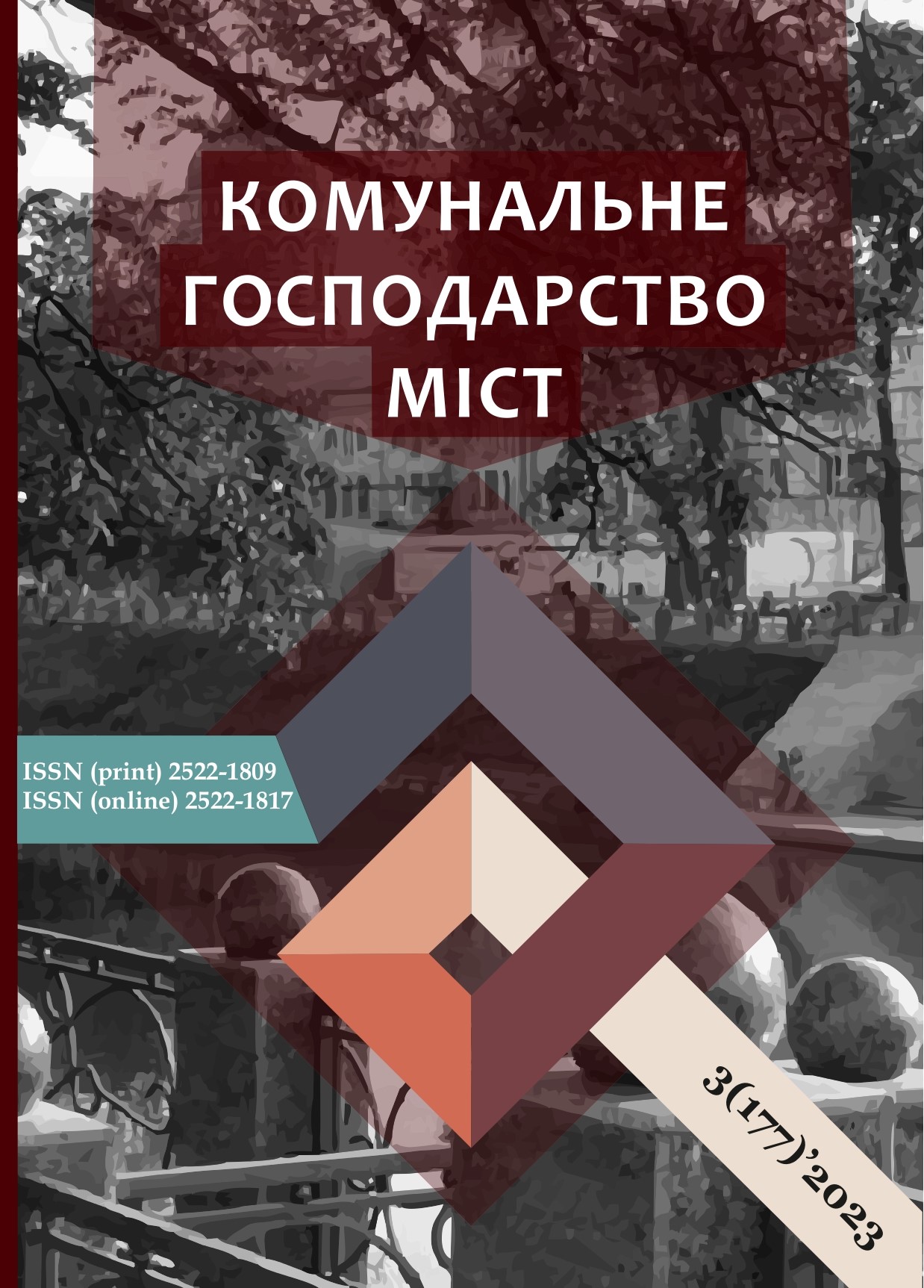STUDY OF THE EXPERIENCE OF DIGITAL TRANSFORMATION OF EDUCATION WITHIN THE EUROPEAN UNION
DOI:
https://doi.org/10.33042/2522-1809-2023-3-177-10-14Keywords:
digitalization, educational environment, digital technologies, education system, digital competence, digital skills, digital education, digital transformationAbstract
The article is devoted to consideration of the problems and trends of strengthening the economic and social potential of the country through quality management of state finances, which is a priority task of the state and its institutions in the conditions of increasing the use of state resources and overcoming the consequences of the global financial and economic crisis. The financial stability and security of the country, the effectiveness of state policy, the level of the population's quality of life, the achievement of social -economic goals of the state. Therefore, in the process of ensuring the quality of management and the use of state resources, the role of state financial control institutions, the effectiveness of the tools and methods they use in the process of activity is important (without exaggeration). The experience gained in this direction proved the low effectiveness of the tools used and proved the need to improve state financial control and audit. The need for careful study and implementation into practical activity of the positive experience of building a state control system existing in developed countries, one of which is the Kingdom of the Netherlands, is justified. There are three levels of control in this country, and all the functions necessary for the state (in particular, regarding financial control) are first determined in the state administration system, and then they are distributed among the bodies, which makes it possible to clearly distinguish the powers and competences of different bodies, including controlling The procedure for introducing internal control systems in every institution and organization of the Netherlands, merging internal audit units into the Central Government Audit Service under the Ministry of Finance, and introducing mechanisms to further limit the minister's influence on implementation deserve attention for the implementation of positive experience in the practical activities of the state financial control bodies of Ukraine. control, the existence of an independent external financial control body (audit court), cooperation and exchange of information between the Central Government Audit Service, the Court of Auditors, the Institute of Internal Auditors, the Netherlands Organization of Accountants, private audit firms, the European Commission (in matters of control over EU funds), and also with universities that train personnel in the relevant field.
References
European Commission. (2019). 2nd Survey of Schools: ICT in Education. Retrieved from : https://digital-strategy.ec.europa.eu/en/library/2nd-survey-schools-ict-education 041
Verbytska V., Polovko А., Byelov L. (2023) Doslidzhennya ponyattya informatsiynoyi viyny, yiyi meta ta kharakterni rysy. The 2nd International scientific and practical conference “European scientific congress” (March 20-22, 2023) Barca Academy Publishing, Madrid, Spain. Р 269-274.
European Commission. (2021). Digital Education Action Plan (2021–2027). Retrieved from : https://ec.europa.eu/education/educationin-the-eu/digital-education-action-plan_en
Bazeliuk O. (2021) Features of higher education digitalisation in the current context. Collection of scientific works "Pedagogical Innovations: Ideas, Realities, Perspectives". №2 (27), 37-43.
Vedmid P.V. (2020) Features of information and communication policy of public administration bodies in foreign countries. Scientific notes of V.I. Vernadsky Taurida National University. Series: Public administration. № 6. P. 34. DOI https://doi.org/10.32838/TNU-2663-6468/2020.6/06
Chernetsky S., Chechel A., Didenko N., Grytsyshen D., Malyshev K. (2021) Financing of e-government projects in the European union countries and Ukraine. Financial and credit activities: problems of theory and practice. No 4 (39), P. 72. https://doi.org/10.18371/fcaptp.v4i39.238799
Shparyk O. (2022) Digital transformation of secondary education: common strategic vectors of the USA and EU countries. Ukrainian Education Journal. № 3. P. 33-43. https://doi.org/10.32405/2411-1317-2022-3-33-43
Sukhonos V.V., Harust Y.V., Shevtsov Y.A. (2019) Digitalization of education in Ukraine: foreign experience and domestic perspective of implementation Legal horizons. №19(32). P. 79-86.
Kremen, V., Bykov, V., Liashenko, O., Lytvynova, S., Lugovyi, V., Malovanyi, Y., Pinchuk, O., & Topuzov, O. (2022). Scientific and methodological provision of digitalisation of education in Ukraine: status, problems, prospects: Scientific report to the general meeting of the National Academy of Educational Sciences of Ukraine “Scientific and Methodological Support for the Digitalisation of Education in Ukraine: State, Problems, Prospects”, November 18-19, 2022. Herald of the National Academy of Educational Sciences of Ukraine, 4(2), 1-49. https://doi.org/10.37472/v.naes.2022.4223
Tsyfrovizatsiya: perevahy ta shlyakhy podolannya vyklykiv. Rozumkiv tsentr. Retrieved from : https://razumkov.org.ua/statti/tsyfrovizatsiia-perevagyta-shliakhy-podolannia-vyklykiv
Downloads
Published
How to Cite
Issue
Section
License
The authors who publish in this collection agree with the following terms:
• The authors reserve the right to authorship of their work and give the magazine the right to first publish this work under the terms of license CC BY-NC-ND 4.0 (with the Designation of Authorship - Non-Commercial - Without Derivatives 4.0 International), which allows others to freely distribute the published work with a mandatory reference to the authors of the original work and the first publication of the work in this magazine.
• Authors have the right to make independent extra-exclusive work agreements in the form in which they were published by this magazine (for example, posting work in an electronic repository of an institution or publishing as part of a monograph), provided that the link to the first publication of the work in this journal is maintained. .
• Journal policy allows and encourages the publication of manuscripts on the Internet (for example, in institutions' repositories or on personal websites), both before the publication of this manuscript and during its editorial work, as it contributes to the emergence of productive scientific discussion and positively affects the efficiency and dynamics of the citation of the published work (see The Effect of Open Access).

